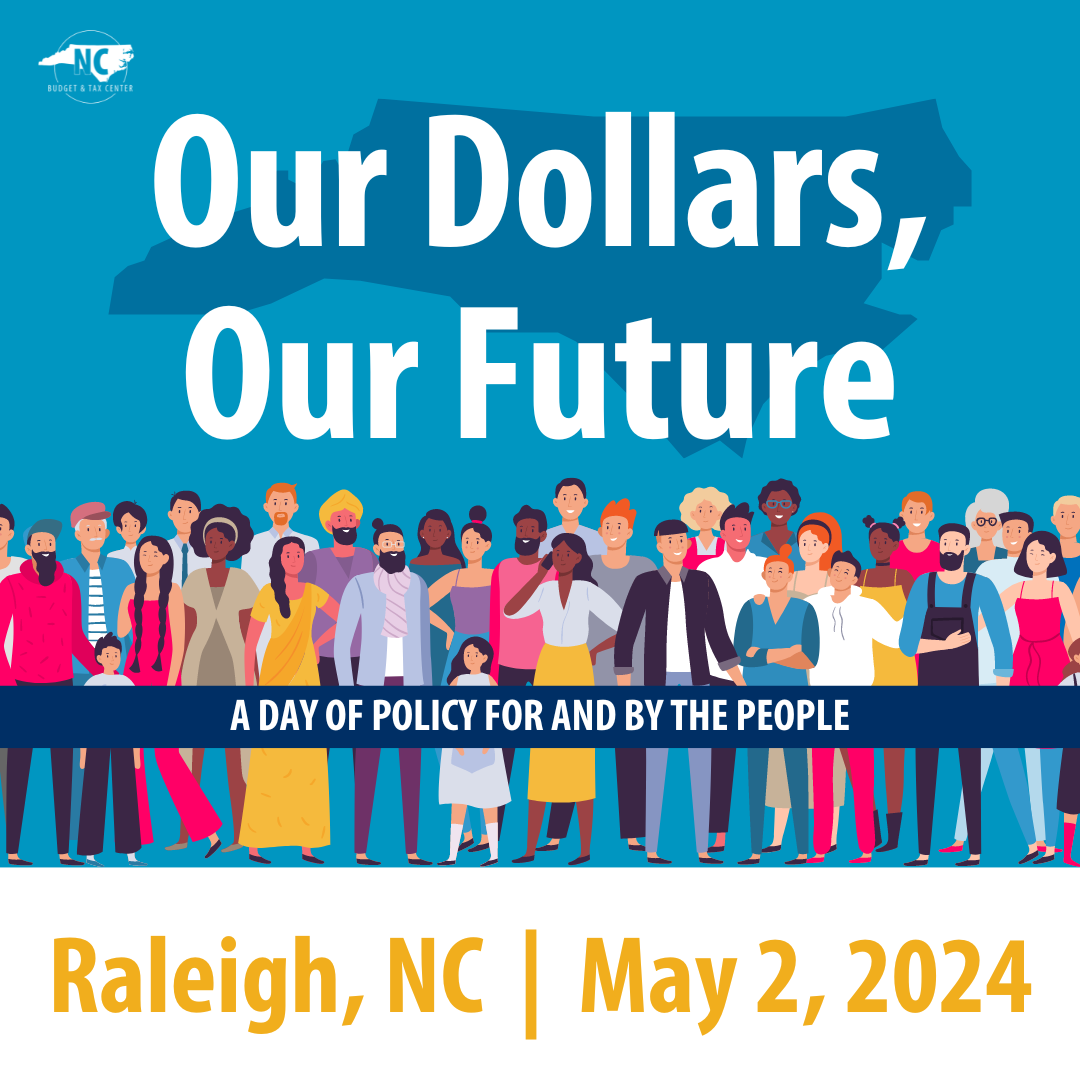
Meet Our 2022 Better NC Fellows: Felisha McElvine
The NC Budget & Tax Center partners with the NC Black Alliance to host the BetterNC Fellowship, which is a 6-month opportunity for individuals to deepen their engagement and understanding in fiscal and economic policies in connection to the work they are doing in their communities. This year we welcomed our second cohort of BetterNC Fellows, who hailed from seven counties across North Carolina.
Join us throughout this month at NCBudget.org/BetterNC as we learn more about our fellows and the projects they are implementing that integrate what they learned during their time in the fellowship.
Felisha McElvine

Felisha McElvine serves communities in Bladen, Columbus, and Robeson counties. Felisha is a Partnership Engagement Manager for Prevent Child Abuse North Carolina (PCANC). Felisha provides evidence-based knowledge on Protective Factors and Adverse Childhood Experiences to build a Regional Community Prevention Action Plan as part of the Kate B. Reynolds Charitable Fund.
In addition to being a Licensed Clinical Social Worker Associate with an MSW, Felisha is a National Certified Protective Factors and Connections Matter Trainer. She has more than a decade of experience in working with diverse populations.
Felisha applied to be a fellow for the 2022 BetterNC Fellowship Program because she saw value in engaging in learning opportunities around budgeting and revenue to better assist her community through advocacy and organizing.
For her project, Felisha worked with the staff at PCANC to create an infographic titled “Poverty in NCL Underlining causes, adverse childhood experiences, EITC, and protective factors”. The infographic provides historical context on how poverty and budget decisions impact the need for the Earned Income Tax Credit (EITC).
How did your experience with the BetterNC Fellowship connect to the work you are doing in Bladen, Robeson, and Columbus counties?
I learned about the BetterNC Fellowship through a colleague at my organization. I decided to apply because I thought it would be a great opportunity to learn about budgets and how they impact our communities. In our first workshop, “We are the Economy,” we took a deep dive into the history of budgets and economic policy decisions in North Carolina. The session intrigued me to learn more about how history impacts the work I engage in today. I started to research how the state budget impacts adverse childhood experiences and the outcomes of protective factors in families through the Earned Income Tax Credit (EITC).
Not only is the subject matter important to my communities, but I knew I could implement my project by doing a presentation with my staff at PCANC as well as for the resilience groups in Bladen, Columbus and Robeson Counties, educating them on the impacts. Rural counties often are considered to be low-income and have high poverty rates, including high child abuse and neglect rates. All of these factors play a role in families and children in these poverty-driven counties and communities, so with extra income from the EITC, families can better provide for their household.
What do you think North Carolinians should know about budgeting in their communities?
I think it is important for others to know and not to limit themselves to what they are comfortable with. Step out the box and learn something new because you never know how it can play a factor in your current work-life balance.
How can you support Felisha’s work?
Please spread awareness by sharing my infographic and this publication with your networks.
If you would like to discuss Earned Income Tax Credits, Felisha’s publication, or her work in Bladen, Columbus & Robeson, you can reach her at the contact information listed below.
Next week, we will learn more about Fellow Abby Karp! Abby is a retired teacher hailing from Guilford County. For her project, she created an interactive activity for middle school students to learn more about tax policy.


